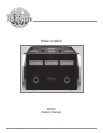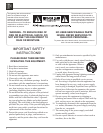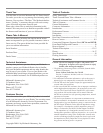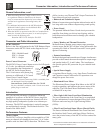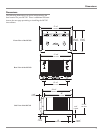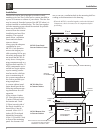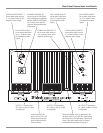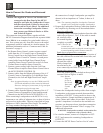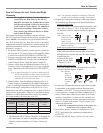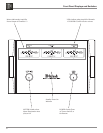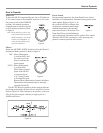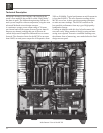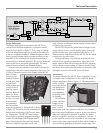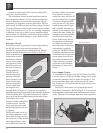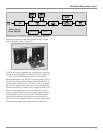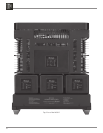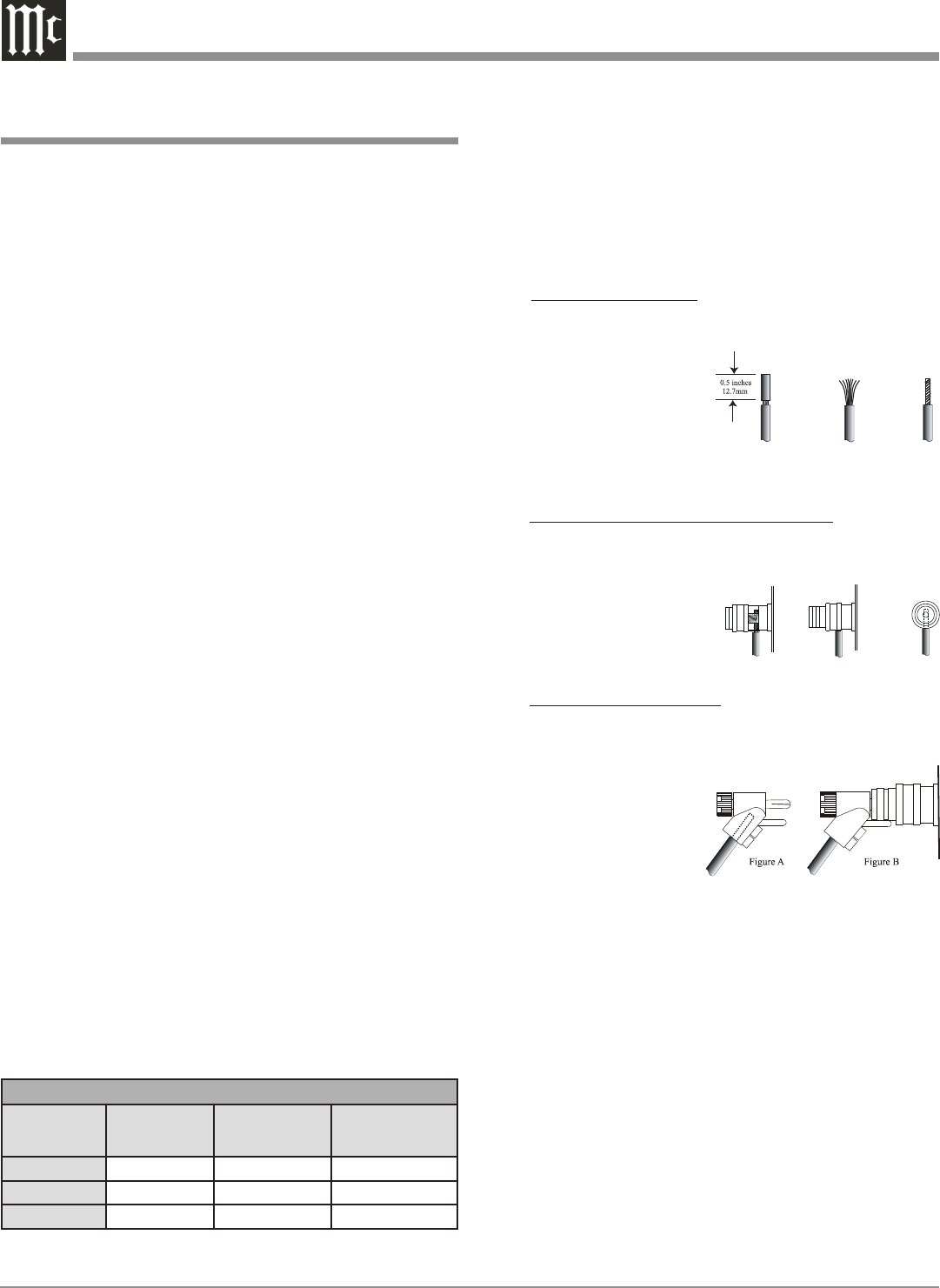
8
How to Connect for Center and Surround
Channels
the connection of a single Loudspeaker per amplifier
channel, with an impedance of 2 ohms, 4 ohms or 8
ohms.
Note: The remaining Amplifier Loudspeaker Terminals
should not be connected to another Loudspeaker.
6. Prepare the Loudspeaker Hookup Cables that attach to
the Amplifier by choosing one of the methods below:
Bare wire cable ends:
Carefully remove sufficient insulation from the cable
ends, refer to figures 1, 2 & 3. If the cable is strand-
ed, carefully twist
the strands together
as tightly as possible.
Note: If desired, the
twisted ends can
be tinned with solder to keep the strands together,
or attach spade lug and/or banana connector.
Spade lug or prepared wire connection:
Insert the spade lug connector or prepared section of
the cable end into the terminal side access hole, and
tighten the terminal
cap until the cable is
firmly clamped into
the terminal so the
wires cannot slip out. Refer to figures 4, 5 & 6.
Banana plug connection:
Insert the banana plug into the hole at the top of the
terminal. Refer to figures A and B.
Note: Banana
Plugs are
for use in
the United
States and
Canada
only.
7. Connect the Loudspeaker hookup cables from a single
Loudspeaker to the output terminals that match the
impedance of OUPUT 1, being careful to observe the
correct polarities. Output impedance connections of 2
ohms, 4 ohms and 8 ohms are provided. If the Loud-
speaker’s impedance is in-between the available con-
nections, use the nearest lower impedance connection.
Refer to “General Information” Note 5 on page 3 for
additional information.
WARNING: Loudspeaker terminals are hazardous live
and present a risk of electric shock.
8. In a similar manner, connect a Loudspeaker to OUT-
PUT 2 and connect the remaining Loudspeaker to
OUTPUT 3.
9. Connect the MC303 Power Cord to a live AC outlet.
Caution: The supplied AC Power Cord should not be
connected to the Rear Panel of the MC303
Amplifier until after the Loudspeaker Connec-
tions have been made. Failure to observe this
could result in Electric Shock. For additional
instruction on making Loudspeaker Connec-
tions contact your McIntosh Dealer or McIn-
tosh Technical Support.
The connection instructions below, together with the
MC303 Connection Diagram located on the separate folded
sheet “Mc1A, is an example of a typical audio/video sys-
tem. Your system may vary from this, however the actual
components would be connected in a similar manner. For
additional information refer to “Connector and Cable In-
formation” on page 4.
1. For Remote Power Control, connect a power control
cable from the A/V Control Center or Preamplifier
Power Control Out to the Right Front Channel Power
Amplifier Power Control In. Connect a second power
control cable from the Right Front Channel Power
Amplifier Power Power Control Out to the Left Front
Channel Power Amplifier Power Control In.
2. Connect a power control cable from the Left Front
Channel Power Amplifier Power Power Control Out to
the MC303 POWER CONTROL IN.
3. Connect cables from the Balanced Outputs of the A/V
Control Center or Preamplifier (Left and Right Front
Channels) to the Left and Right Front Power Ampli-
fiers.
Note: An optional hookup is to use the UNBALanced IN-
PUTS with unbalanced cables instead of balanced.
However, both type of connections for a given Input
should not be used at the same time.
4. Connect cables from the Balanced Outputs of the A/V
Control Center or Preamplifier (Center and Surround
Channels) to the MC303 BALANCED INPUTs (1-3).
When connecting Loudspeakers to the MC303 it is very
important to use cables of adequate size, so there is little to
no power loss in the cables. The size is specified in Gauge
Numbers or AWG (American Wire Gauge). The smaller
the Gauge number, the larger the wire size:
5. This McIntosh MC303 Power Amplifier is designed for
Figure 1
Figure 2 Figure 3
Figure 4 Figure 5 Figure 6
Loudspeaker Cable Distance vs Wire Gauge Guide
Loudspeaker
Impedance
25 feet
(7.62 meters)
or less
50 feet
(15.24 meters)
or less
100 feet
(30.48 meters)
or less
2 Ohms
12AWG 10AWG 8AWG
4 Ohms
14AWG 12AWG 10AWG
8 Ohms
16AWG 14AWG 12AWG



